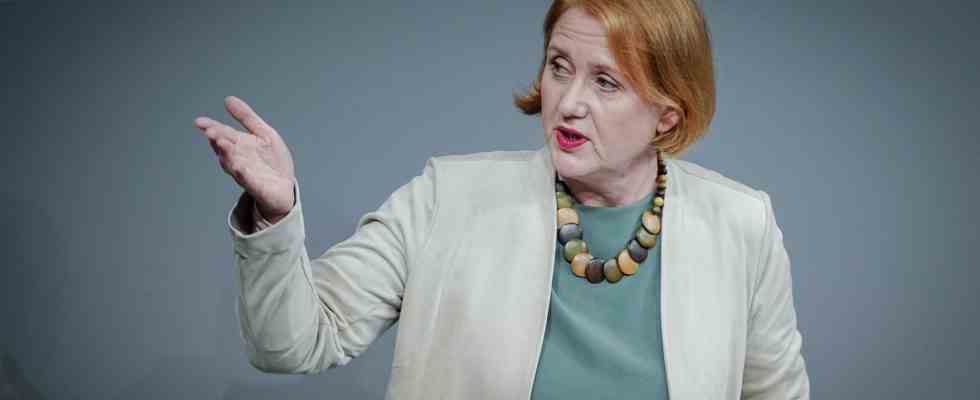Status: 09.03.2023 2:50 a.m
The German Women’s Minister Paus has called for an “era of digital feminism” at the UN. She specifically warned of the gender equality consequences of artificial intelligence.
Feminist foreign policy is here. Now an era of digital feminism is needed, demands Federal Family Minister Lisa Paus at the meeting of the Women’s Rights Commission in the United Nations General Assembly.
Artificial intelligence as a threat to gender equality. If no one changes course, digitization threatens to exacerbate inequality between women and men:
If we are dealing with artificial intelligence and the programmers are de facto all men, then of course this is reflected in correspondingly unfair and gender-insensitive IT and content on the Internet. And that actually destroys what we have achieved in terms of gender equality policy.
Poor and rich countries affected
This included algorithms that perpetuate gender stereotypes and discriminate against marginalized groups, as well as unfair access to resources – both in poorer countries and in rich countries, the minister explained on the sidelines of the meeting.
“It’s also the case in Germany that boys have better access, more computers and more cell phones than girls, for example,” says Paus. For example, girls and women are more exposed to hate speech on the internet.
Paus: Germany should lead the way
Artificial intelligence cannot be stopped. That’s why everyone is well advised to design the Internet in such a way that it is free of discrimination and gender-equitable, pleads the German minister to women’s rights activists and politicians from all over the world: “For example, by increasing the number of women in digital jobs.” , so Paus. “This year, more than 200 billion euros will be generated in the digital sector in Germany alone. But only 17 percent of the workforce are women.”
Germany does have opportunities through the European Union to influence global politics and tech companies. Data protection has already shown that this is possible.
For a long time it was said that you can’t do that. Then the EU agreed on its own data protection rules. They are now more and more standard worldwide. And we are well advised to do the same with artificial intelligence.
A corresponding law on artificial intelligence is currently being discussed at European level. It is intended to ensure that the risks of discrimination are recognized and contained. This should also make tech companies responsible, Paus explained to journalists in New York. The law also provides for fines for violations. The consensus at the women’s conference was clear: the Internet should not become a driver for even more inequality.

